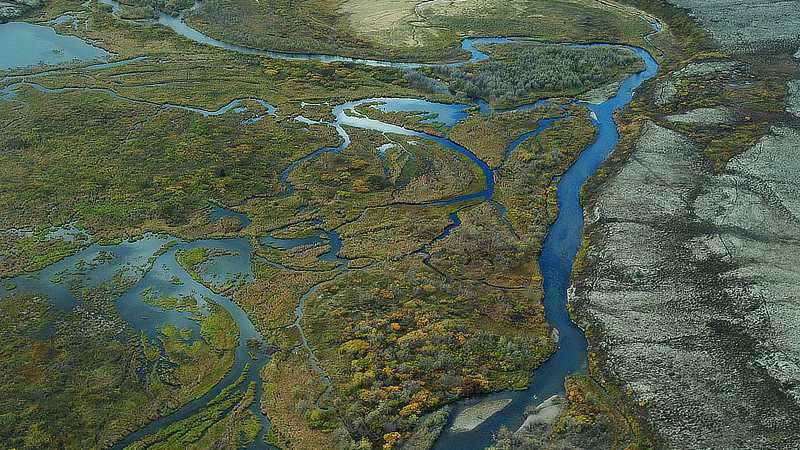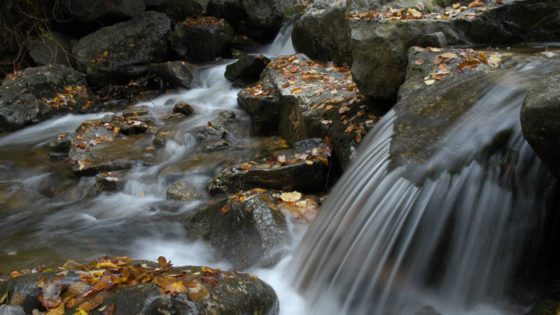
Without a Federal Wetland Law, Protection Will Be Inconsistent Across U.S.
CONTACT:
Jennifer Merrill, Director of Marketing and Communications
Diane Huskinson, Associate Director of Communications
The U.S. Supreme Court’s recent ruling on Sackett v. U.S. Environmental Protection Agency has restricted the EPA’s jurisdiction over wetlands, and with that, its ability to protect them in accordance with the Clean Water Act.
In 1972 the Clean Water Act was made law to “restore and maintain the chemical, physical, and biological integrity of the nation’s waters.” Stroud Water Research Center has been dedicated to informing implementation of the Clean Water Act through research on the largest and smallest creeks, streams, and rivers in the country.
The authors of the Clean Water Act recognized the need for scientific principles to be reflected within the body of the act, and included “research” 44 times throughout the text. Scientists, including the Stroud Center’s founding scientist, Ruth Patrick, Ph.D., were brought in to advise and inform the content of the bill as it was being drafted.
In June 2022 a friendly petition to the Supreme Court was filed for Sackett v. U.S. Environmental Protection Agency, signed by twelve scientific societies representing more than 125,000 practicing scientists — hydrologists, ecologists, biologists, and more. The brief emphasizes the foundation of the Clean Water Act is science:
A proper interpretation of the Clean Water Act requires a basic understanding of water science in order to further the Act’s mandate to restore and maintain the chemical, physical, and biological integrity of the Nation’s waters. This mandate is inherently founded on science and thus can only be achieved through the consideration of science. …In contrast, Petitioners’ proposed framework rejects hydrological reality, ignoring the science behind the ways in which wetlands and streams affect traditional navigable waters.
As a result of the Court’s ruling, wetlands are protected by federal law only when they are adjoining navigable waters of the United States. By some estimates, half of our nation’s remaining wetlands will be excluded from Clean Water Act protection.
Executive Director Dave Arscott, Ph.D., says, “Aquatic systems are dependent on each other and interconnected, even when we can’t see water flowing. To not recognize the connection between wetlands and nearby streams and groundwater contradicts watershed science, and it makes the water resources Americans rely on for drinking, swimming, and recreation more vulnerable to pollution and flooding.”
The decision not only puts wetland habitat at risk; it has the potential to contribute to water degradation, even reversing gains in water quality in some areas made under the Clean Water Act.
Scientists at the Stroud Center have served as expert witnesses in prior disputes over the connection between wetlands and rivers, which has long been a contentious issue for the Clean Water Act. In U.S. v. Donovan, the Stroud Center examined and provided testimony on not only the physical but also the biological and chemical connections between the wetland and river at issue.
Wetlands play a vital role in the water cycle and in the maintenance of water quality. They intrinsically provide protection by dampening flooding, providing aquatic and semiaquatic habitats, and filtering water as it recharges groundwater or flows to surrounding surface waters. This means that some of the nation’s most important groundwater recharge ecosystems are now at increased risk. When wetlands are lost, so is their capacity to filter pollutants and capture nutrients and carbon. Replacing them with impermeable surfaces or agriculture will add to pollution loads.
THERE IS NO FEDERAL PROTECTION OF FRESHWATER WETLANDS OUTSIDE OF THE CLEAN WATER ACT, RESULTING IN INCONSISTENT PROTECTION ACROSS THE U.S.
“Science tells us that wetlands are integral components of streams, rivers, lakes, and estuaries; their loss or damage can negatively impact their adjacent waters. A federal law protecting wetlands specifically for their inherent value of harboring biodiversity, buffering pollution, and reducing the intensity of flooding downstream could help protect the freshwater resources we need. Currently, there isn’t one. It’s up to voters and their elected officials to change that,” says Arscott.
What does the Sackett decision mean for the mid-Atlantic region, where the Chesapeake and Delaware bays contribute to the region’s economy and culture? Wetlands in this region that were previously considered intrinsic parts of the waters of the United States under earlier definition provided in Rapanos v. U.S., will lose federal oversight of the Clean Water Act.
The impact of this decision will be reduced in Pennsylvania and other states in the mid-Atlantic region that have enacted strong laws to protect wetland systems (e.g., Pennsylvania Clean Streams Law and Maryland Nontidal Wetlands Protection Act). State laws are now even more critical to the protection of water resources.
In the mid-Atlantic region, communities have been vocal and, more importantly, active in supporting clean water and healthy aquatic ecosystems and watersheds. Demonstrated commitment through participation in community science programs and the implementation of best management practices on agricultural, industrial, and private lands are making measurable differences now. Thoughtful planning for resilience and sustainability will help us transition to new practices as climate continues to warm and suffer from dramatic storms and droughts.
Arscott says, “Our mission at the Stroud Center is to advance knowledge and stewardship of freshwater systems through global research, education, and watershed restoration. We will continue to propose and execute the highest quality science, deliver exceptional results for our landowners and local businesses, and educate students of all ages on the importance of our water resources. We will continue to work with our neighbors, partners, companies, and friends to continue bringing research and science to bear on protecting this nation’s precious aquatic resources.”
Those who want to stay informed or get involved in freshwater stewardship can join the Stroud Center for an event or a volunteer activity, and they can stay in touch through updates and releases.
About Stroud Water Research Center
Stroud Water Research Center advances knowledge and stewardship of freshwater systems through global research, education, and watershed restoration and helps businesses, landowners, policymakers, and individuals make informed decisions that affect water quality and availability around the world. Stroud Water Research Center is an independent, 501(c)(3) not-for-profit organization.


